Brett Fenton recently got married, went on 2 honeymoon vacations, and returned to his martial arts school with more students signed up. We discussed the ‘Instructor Team Blueprint’ that made this possible.
IN THIS EPISODE:
- Creating a value-based culture in your martial arts school
- How to build an instructor team that runs like clockwork without you
- The method to spot and develop high-potential instructors
- Why investing in instructor training helps ensure your school's success
- Do this when instructors clash with your culture
- And more
*Need help growing your martial arts school? Learn More Here.
TRANSCRIPTION
To create a team that can also be exciting and informative and follow your values and your culture onto that mat space is so important, because then you can be your best as well, not just on the floor but off the floor, where you can problem-solve for parents and students off the mat, because that's just as important as what they're learning on the mat. The moment I switched over to that way of thinking, it all started to change.
GEORGE: Good day. George here. Welcome to the Martial Arts Media Business Podcast. Today I've got a repeat guest with me. Really happy to have Brett Fenton back. Good day, Brett.
BRETT: Hey, George. Good to be back on the podcast again.
GEORGE: The last time we spoke, things were different, right? We were just lockdowns moving in and out, and we were talking about virtual gradings, a few epic things of what you're doing. If anybody wants to backtrack on that, Episode 98, but today I want to talk about something else.
I chat to Brett every week in our Partners group, in our coaching calls, and Brett's always got a ton of value to share. One thing that's come up is Brett runs about 70 classes per week at Red Dragon Martial Arts, and is only teaching six.
I want to get down to the number one question school owners always ask me is, “How do we get more instructors? How do we go about that process?” I want to, on your behalf, pick Brett's brain today and just get all the insights on how that's going about.
Brett, just a quick intro for those that haven't listened to the previous podcasts. Just give a quick roundup on your background, where you're based, what you guys do and so forth.

BRETT: Absolutely, George. I've been doing martial arts pretty much all my life, but I got really serious in my late teens. Got started doing Wing Chun Kung Fu, Jow Ga Kung Fu and some Tai Chi, and started teaching classes. As I think most of us do, it's just you're the standout student in the class and so you get thrown up at the front to run warm-ups, and then all of a sudden you're good at that, so then you start teaching classes.
I was doing that in the early '90s, had my first school in '94, and then I started Red Dragon Martial Arts in '97. We're about to hit 24 years of running classes. That's changed, obviously, from the small community hall where we had 20 students to now we're over 400 students. We only had two classes a week. Now we have 70 classes a week, and we have two training rooms, a gym, a full-time professional facility, and an instructor team of over 20.
Yeah, as you said, I only run six of those classes at best on any given week. I love running classes. I love teaching classes. I teach probably more private lessons than I teach classes. I'll probably do between 10 and 20 private lessons a week. That's where I try to add more value to our teaching staff, I suppose, in that element. I'm teaching the instructors or our elite athletes.
Yeah, it's about I was that instructor that basically taught classes for free, was pulled off the bench for no reason other than I was good, and I wanted to come up with a better way of doing it. I've been lucky enough over the last few years to hang out and pick the brains of some of the best people in the world, like Dave Kovar, Roland Osborne, those kinds of guys, and just learn as much as I can. Fred DePalma is another one.
They're my mentors, and this is my variation and version of that that works well in my school, so yeah. That's what we're going to probably chat about today.
GEORGE: Yeah, perfect. You've implemented that really well, just by your lifestyle. I mean, let's talk about that, right, because a couple of months ago you got married. Congratulations.
BRETT: Thank you.
GEORGE: You were able to completely switch off, completely switch off, and go on a honeymoon. I think you had two honeymoons, didn't you?
BRETT: Well, we'll get to that. Yes.
GEORGE: Right. For the purpose of this, you were able to take a break, leave things over to your team, go on a holiday, get back with a school that has grown and retained its students. How do you go about that? Where do you start going from, it's a one-man show, and obviously you grow a team, but you could actually have the confidence and faith in your team that you can take that complete step back?
BRETT: Absolutely. I still remember. It doesn't happen as much these days, but up until 10 years ago, I couldn't even leave the floor without the parents going, “Oh, the class doesn't run as well without you. You're the superstar instructor. We are paying for you.”
I think all instructors, particularly school owners, feel that pain, that they can't even have a day off. They come in sick, eyes hanging out of their head. They're exhausted.
My retort, I suppose, to customers and parents alike, would be to say to them, “If I teach less classes, when I'm on that floor, I'm fresh. I'm invigorated. I'm excited. I love being there.” If I'm on there for …
I was teaching 40 classes a week at one stage 10 years ago, just because I needed to be on the floor and I didn't have a team that was capable without me, but there were days where I wasn't a great instructor. I was cranky. I was exhausted. I was burnt out. They're not getting the best of you when you like that.
To create a team that can also be exciting and informative and follow your values and your culture onto that mat space is so important, because then you can be your best as well, not just on the floor but off the floor, where you can problem-solve for parents and students off the mat, because that's just as important as what they're learning on the mat. The moment I switched over to that way of thinking, it all started to change.
Yeah, as you said, I just got married about three months ago. We went to Tasmania, spent two weeks in isolation with no reception. Everything went smoothly, came back, was back for about two weeks, and then I took my wife away for her 50th birthday in the Whitsundays on our yacht, and we didn't have any reception there either for a week.
Loved the ability to do that, and know that my team is looking after their baby as much as it is my baby, because they love the place. They're invested in it. They've grown up there. It's really important to know who to pick when it comes to that, so that you have that peace of mind when you go away and have some days off, let alone if you're sick or unwell.
Because I see too many martial arts schools out there closing their doors for the day because the instructor's sick, and you just can't do that and be professional at the same time.
GEORGE: Yeah, cool. I liked what you said, that they take care of their baby as much as yours. Before we get into the biggest obstacles and how school owners have got to make this transition, I'd like to talk about culture. How did you install that culture?
Before we get to that, we've got a really great download for you, for something that's going to really help you on choosing the right instructor, what ethics and characteristics you've really got to look out for. I'll mention how you can grab that, but let's chat about culture. How did you go about installing that culture within your team?
BRETT: No worries. A number of years back, we actually went through a bit of a slump with our culture. Had a few changes, a few instructors left, and it happened. In business for 25 years, there are going to be shifts in culture, particularly when I change direction and I see a way of changing. It's always going to happen, and we've had that happen probably five different times over 25 years.
It can be just as simple as we're adding a new program, or we decided we want to go from being a small-town community hall to having our own facility. There were people that didn't like that idea. They thought that, no, that's not martial arts. Then going from that to having multiple rooms with air conditioning, that's like, “Well, now that's not martial arts.” To some of your instructors, that's like you're turning into a gym.
We had a lot of obstacles to overcome, to keep growing and going in the direction that I thought that the school needed to go in, but also where I thought the majority of my students deserve to have their school go in. I'm always looking out for them to have the best facilities, the best instruction that they can have, but that doesn't come without its challenges.
Basically, we sat down with an expert that is an expert in culture, and I'm lucky enough that my wife's also a culture manager. She works in the culture industry in her business. She, along with one of my best friends, Matt … he lives in Canberra and he's big on culture there … they came together and we created these value systems for our school, that are unbreakable rules that we run our business by and run our school by.
Then they were up on the wall in massive posters, so things like we believe … and they're all belief statements. “We believe that everybody has the opportunity to become a black belt, not just the athletes,” so things like that. “We believe that nobody should blow another person's candle out.”
We have all these belief systems, and they're everywhere throughout our school. That tells everyone, “This is what we believe in.” I'm also a massive Simon Sinek fan, and he's obviously worldwide. He gets brought into businesses to help with culture. I've listened to all of his podcasts, his interviews, his books, his TED Talks, you name it.
For me, culture is the number one thing as far as I'm concerned. It doesn't matter what you teach. It doesn't matter if you're doing martial arts, gymnastics, or dance. I don't care. If your culture is not right, you'll never grow and you'll never have harmony inside there, and you'll never have a day off because you'll be having to micromanage your team all the time.
I don't micromanage my team. I actually sit in this office, where I am now. I spend most of my time in this office, even when the classes are running, and I pop out, just have chats to the parents if I get a message on my watch or my phone.
I don't teach classes. I've got cameras right above me, where I am right now. There's 12 cameras. I can look up there and see how it's all going if I really want to, but at the end of the day, I trust my team.
They are well-trained. We do monthly training sessions where we go through any of the issues we had during the last month. We've noted it all, we fix it all and we move on.
We listen to our feedback from our students and our parents, so yeah, it's all important. It's an ongoing process that doesn't happen overnight, but yeah, it has to happen.
GEORGE: All right, perfect. You're installing the beliefs. That's very known amongst the culture within the students, so that helps. Now, how does this transition over when you start trying to spot the talent and seeing, all right, well, who's the next instructor? How does it go from being a student to transitioning someone and inviting them to become an instructor?
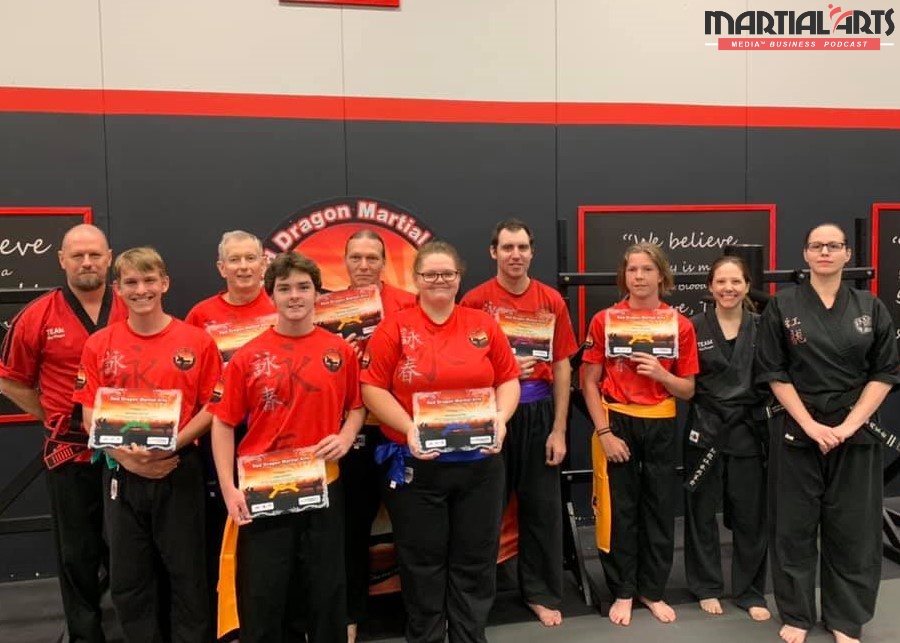
BRETT: Very important, George, in the fact that I think we already do it the day we have people come in and do a trial class. We're very big on not just accepting everybody as a student. They have to have pretty much the same, I suppose, values that we have anyway. It doesn't matter.
If you come in and you go, “Oh, I'm a 10-time world champion,” and you've got a bad attitude, I'm probably not going to accept you as a student. I'll go, “Mate, just go down the road, or go to the AIS or wherever you need to go to feed that ego.”
I'm looking for people that are like-minded to us, have the same values or want the same values, and want to train hard. They want to enjoy their training. They want to be nice to everybody. They're not there for their own selfish reasons all the time. It's pretty much from the day they walk in for their trial. We're almost pre-editing the instructor team by that.
Then that leads us down the path to maybe a month or two in and we see people that are training really hard, everybody gravitates towards them, their personality is infectious, and that's a big thing. My instructor team, it's always on personality first, and then skill and talent is way, way down the track, because you can't teach personality. You literally can get someone who's very technical and very skilled and can put an entire class to sleep, because they get down that rabbit hole of technical stuff.
You get someone who's personable, who's what we like to call Disney, so they're very exciting. Everybody loves to be around them. They can teach people opening letters and that would be an exciting class. It doesn't matter what they're teaching, which makes it easy because you can get them when they're only six to twelve months down the track, teaching how to kick something or how to punch something, or how to hold a kick shield or how to do one technique, but the way they teach it will be amazing.
That's our number one, I suppose, way of wading through all of the student body to find the diamonds in the rough. We do that from personality first, and then we teach them the skills, not just the martial art skills but the teaching skills, which is so important, how to pass on your knowledge.
GEORGE: Why Disney?
BRETT: I think Disney has been doing it for nearly a hundred years, and they've always improved on what they've done. In the industry all over the world, managers and business owners from all over the world actually go to Disney's, their college, where they learn how to do staff management, how they get to present and perform at an elite level. I often say to our instructors that when we're out there teaching, we're not just passing on knowledge. Every parent and every kid that's watching us, we're performing at the same time. How we perform in front of them will keep them engaged.
I think back to when I was in school. The number-ones, the teachers that always got the information across to me best, were the ones that engaged me very well. We want our instructors to be very engaging, very likable and very knowledgeable, obviously.
We have to make sure that we start with them being likable, because nobody's going to listen to them if they're not. They're just going to switch off. It doesn't matter how skilled they are. Yeah, Disney does it best, I think, and they still do it to this day, running a course on that, so very, very useful to learn.
GEORGE: All right, perfect. We're about to go with this. I want to make this episode super practical. Now, full disclosure, Brett and I worked together on a course. It's called The Instructor Team Blueprint. I'll talk more about that, but really what I want to do in this episode is I want to extract some things from the course that were really useful, but I think that can make the most impact from the get-go.
I think the number one question that always comes up in our group is how do you go about finding the right instructors or inviting them, how does that process go. I want to dive a bit more into that.
Then as a gift with this episode, if you download the actual transcript, we'll include the Character Traits to Clarify, which is basically a list of what character traits you're looking for and how you go about finding that in the instructor that you want. To bring that back to here, let's talk about spotting the talent.
You mentioned you plant the seed from the get-go. How does it go from there? How do you get people on board your team and take it from there?
BRETT: No worries, George. First thing is obviously, spotting the talent, to go up to them and say, “You're really skilled at this skill. You'd make a really good instructor one day.” If you see them naturally just going over and helping other people, that's a very key indicator, but just by someone who's at the school, they don't miss classes. When they grade, they grade at a really high level. They're highly personable, so they're that Disney.
Once you start to see that, that's when you can approach them and say, “Listen, I think further down the track, you'd become a really good instructor. Have you ever thought about becoming one?”
If they say, “No, I hadn't, but that's pretty cool,” you go, “Well, we do instructor training once a month. You're more than welcome to come along and have a look at it and see if you enjoy it. If you do, you can come to that until such time as you feel that you're confident enough to start helping us out,” and then just giving them small roles as they go. It might be, “Do you want to come in once a week and help with our three-to-six-year-old class,” or our seven-to-12-year-old class or our adult class, whichever one they like.
Then from there, it just grows. It's, again, growing their ability to stand in front of an audience, their ability to have confidence in their knowledge. Because even though they may present really well in a grading, when they come to teach somebody else, they may find that they get too nervous, they can't talk.
We need to teach them the skills of doing that. We do mock classes when we do our instructor training to help people get through their anxiety when it comes to teaching, if they struggle. A lot of our instructors, funnily enough, have a lot of anxiety, and this is one of the best things for them, because they learn to cope with their anxiety.
They learn the tools to use, whether it's the breathing tools, mindset drills, things like that. It just makes them even better martial artists, because now they're not worried all the time. They can stand up in front of an audience, be in class, and present. They take that out into the real world as well, and it makes them better out there, whether they're working or just in their personal life.
GEORGE: All right. Just backtracking, you've invited them, they come to instructor training. How does it progress from that point?
BRETT: With our adults, they'll just basically go up into our advanced rank. When they get to an advanced rank, they can start assisting in classes if they've been doing the instructor training. Because we don't want anyone assisting until they've been through our instructor training, because they don't know the correct language to use. They don't know the correct way to correct.
They might just go up to a kid and just go, “That's terrible, fix it.” That could be the day that that poor kid's come in and he's having a hard day as it is. Then you've had this assistant come in for his very first class, has no idea what your culture is on the floor when it comes to teaching, and that kid's now, “I don't want to train anymore,” and he leaves. You can lose students quickly that way.
We want to make sure that all of our assistant instructors know what to say, how to say it. They are empathetic as well as being personable. For our junior instructors, we have what we call Black Belt Club. They go into that after they get to an intermediate belt.
That means that they can come out and they can show other kids how to do things like push-ups, how they can hold pads and kick shields. They can direct them. They can help set up the floor, but again, they still come to our instructor training, because we don't want them, again, using the wrong terminology, using the wrong communication skills.
We can have 10-year-olds out there doing that. We have some really good 8-to-10-year-olds that will help. They'll be partners in our jiu jitsu program, where it's so hard for a three-to-six-year-old sometimes to partner up with another kid, because they just don't understand roleplaying and taking turns. We usually put them with one of our juniors and they do the techniques on them, and then that makes it a lot easier. You get through a class a lot faster and at a higher level.
Then once they've been doing that up to about the age of 14, we then put them into our junior instructor program. That will be, like say in our Kung Fu, it would be our SWAT team. In our Extreme, it's our X team. In our jiu jitsu, it's our Sub Club, so we have a variety of different levels.
Then that means that they can actually take a group on their own, so they have a group of kids. Usually when they first start, it will be the white belts, because they're easy to teach. They're keen for knowledge. They look up to these kids, and basically build their skills out on the floor while they're still doing their instructor training every month.
Once we get up to an adult, they can then go up to Senior Instructor level. Whether they're being paid or not, it's up to them. If they are being paid, though, we don't start them until they're 14 years of age. They must be volunteering first, to basically make sure that they are part of our culture on the floor as an instructor, not just there for the money.
GEORGE: Yeah, cool. Funny enough, we just spoke a bit about this on our Partners Power Hour call earlier, but let's talk about money and compensation, because that's another question that comes up. How do you compensate instructors? When do you start paying, when do you not pay, or is it different for everyone? How do you go about that? Obviously, taking into consideration we've got an international audience, so we'll leave the Australia terms out, but just in a general concept.
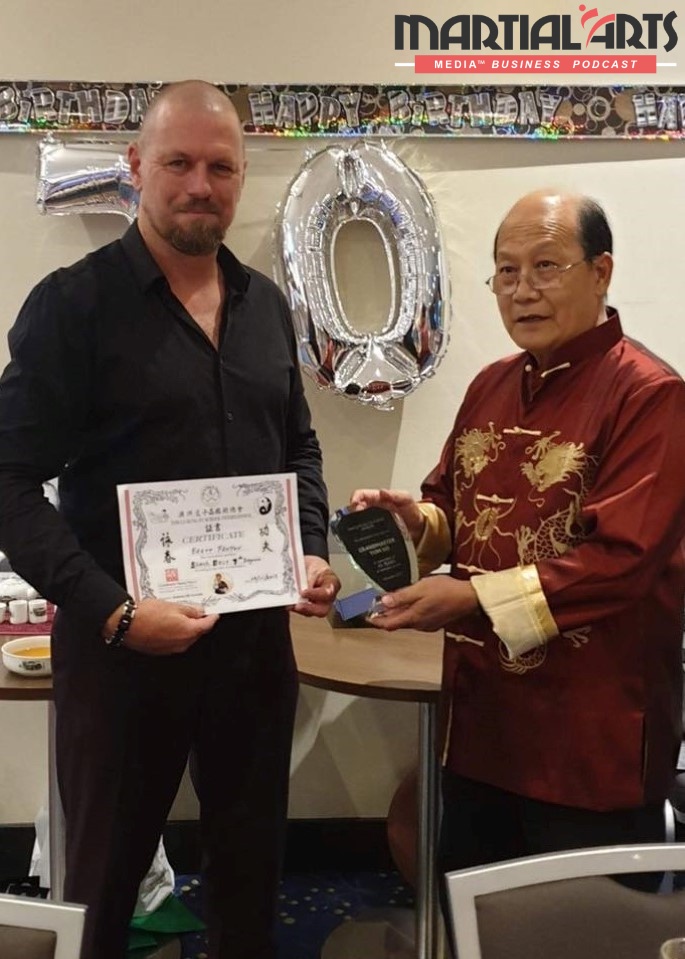
BRETT: It depends on the student. It's, again, coming down to knowing what your student's goals are. Why are they teaching, at the end of the day? For some of our instructors, they've been teaching for 10 years. They don't want a dime. They actually find it insulting. It's an insult if they get paid, because we can't actually pay them what they're worth. If I've got a lawyer who wants to teach class, I can't pay him $200 an hour to teach my class. He's not going to give up his job. He just loves doing it, because it makes him feel valued.
There's a lot of value in contributing back into the school as an instructor. I did it for a good 15 years before even seeing a dime, but I love it. It was my apprenticeship, I always call it, in instructing. For some people, that's all they want, and they'll teach one class, maybe two classes a week. There's no expectation for them to teach, but they love it and they do it. Sometimes it's for decades.
Then you've got the instructors that go, “You know what, I'd rather do this than do a normal job. I don't want to do a normal job. I want to do this.” Whether they're coming out of high school, they're in their late teens, and they go, “I want to do this,” then we talk about them going down that pathway of becoming a qualified instructor, being paid.
I've got one instructor that's been here for 10 years, and he's been paid more in the last 10 years than any of our other instructors, just because he is a superstar. He could ask me to go anywhere all over the world, back when we could fly places. I'd go, “Sure, just make sure you get back here in a couple of weeks.” He's that valuable.
Then I've got instructors that were six-year-olds that are now 20-year-olds and they don't want to have a normal job, so they're getting paid as well. It really depends on what their goals are and where they see their future. If they just want to teach one class a week or two classes a week, and they love teaching and they don't want to be remunerated, that's fine, we don't pay them, but we give them so many other bonuses. We give them stuff, like they get uniforms, they get gifts all the time.
If I think they deserve something, I'll take them out to dinner, you name it. We just make sure that they feel special. It's one of those things. They need to feel valued, more so than the financial side of it. That's why a lot of people volunteer in the first place, it's that value that they feel for their contribution. We don't want to undermine that.
GEORGE: Perfect. Sometimes paid, sometimes not, just depends on the person. We were discussing, as you mentioned as well, it's important that you can't pay a lawyer $200 an hour, type of thing. You've got to have the balance. Obviously, if you've got to pay someone, that you pay them something that's valued, but also not an insult. For those people, it might be better for them to have the social norm of just being able to contribute and be valued in a different way.
BRETT: Absolutely. They may also get paid really well in their job, but where they are, they don't have that esteem. They're not put up on a pedestal. They might be like a mechanic, who earns 50 bucks an hour but nobody even talks to him. Then all of a sudden he's out on the floor and he's a black belt, and everybody is listening to every word that he says. You can't buy that.
That's just pure pride that he loves, and you couldn't pay him for it. Think about it. Most of our instructors paid to be in that position. They paid fees to get to that position, like I did when I was training. Yeah, we just want to make sure that they feel valued and that we appreciate everything they do, and that they are held in esteem with their student base.
GEORGE: Just interesting, let's flip the tables quickly. What happens when it goes not to plan and you get the instructor that is not aligned with the beliefs, or they were aligned with the beliefs but the ego is growing with the position, or they're just getting off track or something happens in their life and it derails them, and they start to separate the alignment where you and the club are going versus on their journey? How do you deal with that type of conflict?
BRETT: Oh, there's obviously a number of ways that people do deal with it. Like a lot of school owners, I'm sure that I've had it happen to me so many times over the years. It just becomes part and parcel. Students leave, instructors leave. It's just what happens. There's a few ways you can deal with it. You can be obviously nasty about it and just kick them out. You can force them out by taking away their shifts or whatever, or you can just have someone come in and take over their class.
I like to do it from another way and go, “Okay, what do I need to do? Obviously I don't want you here, because you're not good for our culture.” I can either get them to come back on board with our culture, which is Plan A. Plan B is to then go, “How can I help you to go out and do your own thing?”
Whether that's going and teaching for somebody else, because it usually is only around the instructor that has their own opinions on how it should happen. They're not in line with my opinions or the school owner's opinions. Then there's going to be that fraction happening inside the classes all the time.
That person probably needs to go and run their own school. Then you go down the pathway of, okay, “Well, which way would you like to do it? Would you like to do it with my support? Would you like to do it as our branding, without our branding, or do you just want to just go and do your own thing?” You give them some avenues to go down.
We've had ones that have gone just down their own way and not wanted any help whatsoever. We've had some that have gone with help. Yeah, at the end of the day, you're looking at their future still, like you would any other instructor. If it doesn't align with the direction we're going in, that's okay, because we can't all go down the same path.
We want to try and make it as amiable as possible. I don't want to have them out there being competition, as they say. I'd like them to be on the same page as us and looking out for each other. I'm still great friends with all my instructors of 30-plus years. I had to do the same thing at some stage to them. I had to go out on my own, but I did it respectfully, because I saw a different pathway that I wanted to go down. I was respectful, and I'm still in contact with them and I still train with them, and I still get them to come in and guest-instruct and all that stuff happens.
Yeah, it's understanding where you've come from and then understanding where you want to go. I understand that from my perspective and their perspective. I think that takes a little bit of empathy, to understand it from the other person's perspective. It's not the wrong thing to do, they've just got a different direction they want to go in, and so we help them.
GEORGE: Yeah, totally. Because that is a concern that a lot of school owners mention, if you don't want to get someone on board, you make them the star of the school, and they decide they're too entrepreneurial and they want to open up their own school. The intention was just to grab what they can, and they make a run for it. What you're saying is you're just approaching that with a bit more of an empathetic approach, and you want to make sure you instill those values and that there is an open path that people can leave.

BRETT: Yeah, absolutely. Yeah, because I've been down the pathway. I've had instructors just leave and not tell me, and then go and open up in opposition. I think as long-term instructors, we've all had that happen. That's just because we didn't read the warning signs early enough. That's part of growing.
We often talk about in the industry, if you get a black belt, it doesn't mean to say you're an instructor. Then after you've been instructing for say a good 10 years, you'd probably have been a black belt instructor if you'd been doing it properly. Then after you've owned your school probably for 20 years, maybe now you're a black belt school owner.
You try to look at it in that vein, that you've got to be improving your skills as an instructor, but then also as a school owner and then as a business owner. They're all skills that you need to be growing. Part of growing as a business owner is understanding that your staff will want to leave at some stage, like students want to leave, and that you've got to find an amicable way of making that happen, so that if they need to come back to you for help later on, there's a doorway for them to come through.
Because if they leave under bad terms, then they don't feel like there is a doorway, or there usually isn't because it's not amicable. I've been down that path many times, and would have preferred it not to be that way, but these days I'm a lot better on that. That just comes from experience. The only true way of getting it is to go through it.
GEORGE: Exactly, yeah. I like Ross Cameron‘s philosophy. He calls it the bus, you know. Everyone's on the bus, they get on the bus, and sometimes they jump off the bus. You help them get from one place to the next. It's their time to hop off the bus and go do their own thing.
BRETT: Yep. You can't get upset about it. You helped them in their journey to where they got to. The fact that people will stay for 5, 10, 15, 20 years is crazy, that they want to stay that long. That means you've done something right.
Rather than looking at it from the point of what I did wrong for them to leave, you've got to look at it from the perspective of that you did something right for a very long period of time, and then learned from it. That's what we're always trying to do. I'm definitely trying to do that all the time. Perfect at it, not, but I'm always trying to improve the way I do it.
GEORGE: Awesome. We wanted to include a couple of things and resources you could use from this episode. If you go to the website, if you're listening to this, martialartsmedia.com/119. That's where all the resources for this episode are going to look.
As I mentioned earlier, Brett and I, we spent some time, and my job was to extract everything out of Brett's mind and help him put together a program that covers the Instructor Team Blueprint in six steps.
We've gone from the team skill plan, how to assess how many instructors you're going to need and fulfilling those positions, spotting the right talent, systemizing the training accordingly, running the instructor training boot camp, how to do that, rewards and recognition, payments and a whole bunch of other things. From what we just discussed … and, Brett, I'm about to put you on the spot here, forgive me.
BRETT: That's okay.
GEORGE: When you download the transcript of this podcast, we've included the Character Trait Clarifier. It's basically a list of what you're looking for as in work ethic, popularity, their passion, communication, leadership skills. Just going through a process of how to basically score people, score your students, and see if they've got the right attributes and right values and the right character traits to become an instructor.
Putting you on the spot, Brett, just talking, it reminded me of how people find it hard to get people to transition from student to instructor and how that process goes. You've got something called the Instructor Letter of Offer.
BRETT: Yep.
GEORGE: Do you mind telling us about that? Then I'm going to ask if you wouldn't mind including it.
BRETT: Okay. No worries. Absolutely. I can definitely include that. I'll send it through to you. It basically is a formal letter that we would send out to an instructor that's maybe even been doing the instructor training. They've come in, maybe done one session, and we've gone, “You know what? We think that they would be the right fit.”
It can be a teenager, it can be an adult, it doesn't matter. It can be even a kid, if you really want to start your junior instructor team that way.
Just the formal part of it just states everything that you expect of them, that you've found that they would be the right fit, that they have the necessary skills as far as their personality goes and they fit the culture. It's really important that they understand what they're in for, that it's an important role, that's it's not just being plucked off the floor and put up on the front of the class, which obviously, we still do that to this day. We have instructors, but we don't pick on anyone that doesn't do instructor training, but you have to start somewhere.
I remember getting plucked off and just put on the front of the stage and, “Here you go, run a warm-up.” There's a better way to do it. During class, walk around, find the right people. Find if they're interested, invite them to the first session. If after that they seem interested, they do a really good job, then you can send them the offer to join our instructor training squad and go from there. You can have levels of that.
You can write the letter for, “We'd like you to become a junior instructor,” or we'd like you to become an assistant instructor, a senior instructor. You can basically format it to suit whatever your needs are.
Just the sheer fact of getting something in the post that's formally saying that we want you in our team, that's a pretty proud moment for most people. Rather than just coming up and slapping them on the back and going, “Hey, you want to be an instructor?” It's a big difference in the mindset then. It just shows how much we think about these things. It's professional.
GEORGE: Perfect. All right. Thanks for that. We'll include that with the transcript, and as a bonus, what we'll extract is just, with the Character Trait Clarifier, there's a snippet in Module 2 of how we went about that and how you go about working with that. I'll get our video editor to just edit, give you that snippet so that you know how to work through the worksheet and you know how to go through the PDF.
Other than that, Brett, thanks so much. I mean, if you've got anything to add about the Instructor Team Blueprint.
Just for reference, if you want to grab the course, you can go to martialartsmedia.com/courses and just look for The Instructor Team Blueprint. It's up there. It's really a good value for the amount of knowledge and work that's gone into it. Yeah, it's a really good value. Brett, have you got anything to add on that, about the program?
BRETT: I think that I wish it would have been around 20-something years ago when I was first teaching classes, and I had to travel all over the world to do that and then bring instructors from overseas to here. It's just been one of those things, that I know all of us long-term school owners wish we had more information back when we did, but now we do.
It's just a combination of 25, 30 years of teaching and all the things that I did incorrectly and correctly, fined-tuned into a nice, easy-to-learn-and-use course that I think would suit anybody that's trying to grow their school and not want to be at their school 24/7, teaching every single class 'til they're 85.
I don't want to retire. This is my retirement. When I'm at my school, I like being here, but I would hate to think that I'd be like my instructor, who is in his seventies, and if he's not at the school, it's closed. I don't want to be that. I want to be able to take time off. I want to be able to be unwell and not have to get up and go to my class and teach. Thank God I didn't have to worry about COVID.
Even to the point where my team is so proficient that when we did lockdown last week, I taught no classes. They were so good. They teach it all. It was amazing. I just go here. There's Zoom, off you go.
They just report back to me how it went, so it's perfect. It allows you to have a life. It allows you to have your family. It allows you to do other things, and it allows you to really enjoy your martial arts again and enjoy your school, rather than being stressed out about it all the time. Yeah, it costs you a bit of money to pay a really good team, but it's worth it in the long run, for sure.
GEORGE: Awesome. Cool, Brett. Thanks so much. Great having you back on again, and we'll chat again next week.
BRETT: See you soon, absolutely.
Here are 3 ways we can help scale your school right now.
1. Join the Martial Arts Media™ community.
It's our new Facebook community where martial arts school owners get to ask questions about online marketing and get access to training videos that we don't share elsewhere – Click Here.
2. Join the Martial Arts Media™ Academy and become a Case Study.
I'm working closely with a group of martial arts school owners this month. If you'd like to work with me to help you grow your martial arts school, message me with the word ‘Case Study'.
3. Work with me and my team privately.
If you would like to work with me and my team to scale your school to the next level, then message me with the word ‘private'… tell me a little about your business and what you would like to work on together and I'll get you all the details.
Enjoyed the show? Get more martial arts business tips when you subscribe on iTunes for iPhone or Stitcher Radio for Android devices.
***NEW*** Now available on Spotify!










 BRETT
BRETT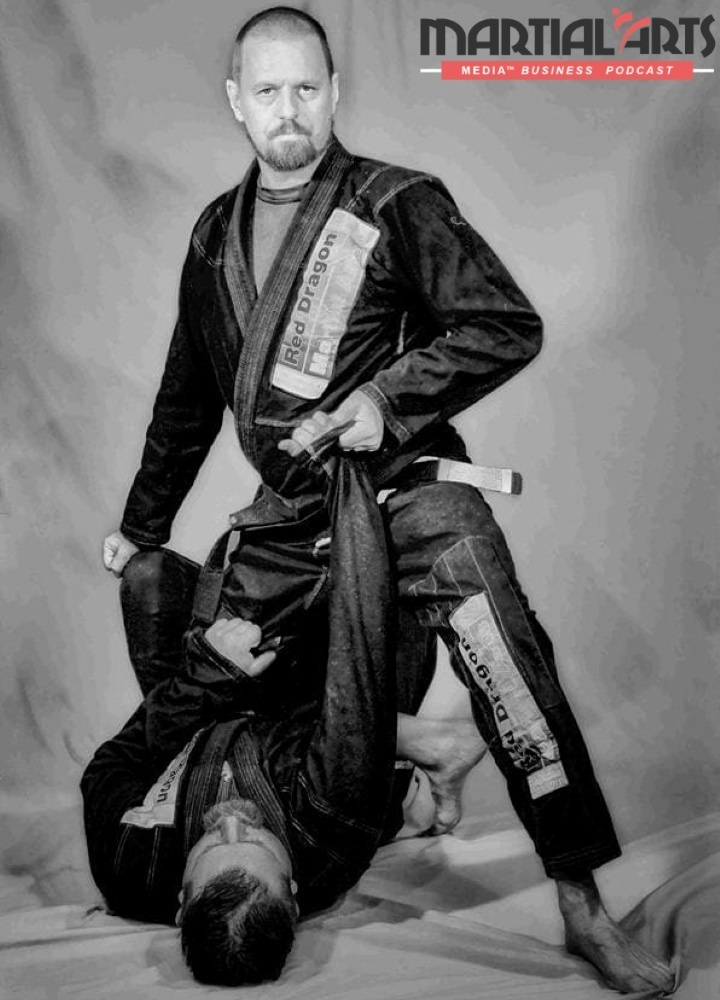

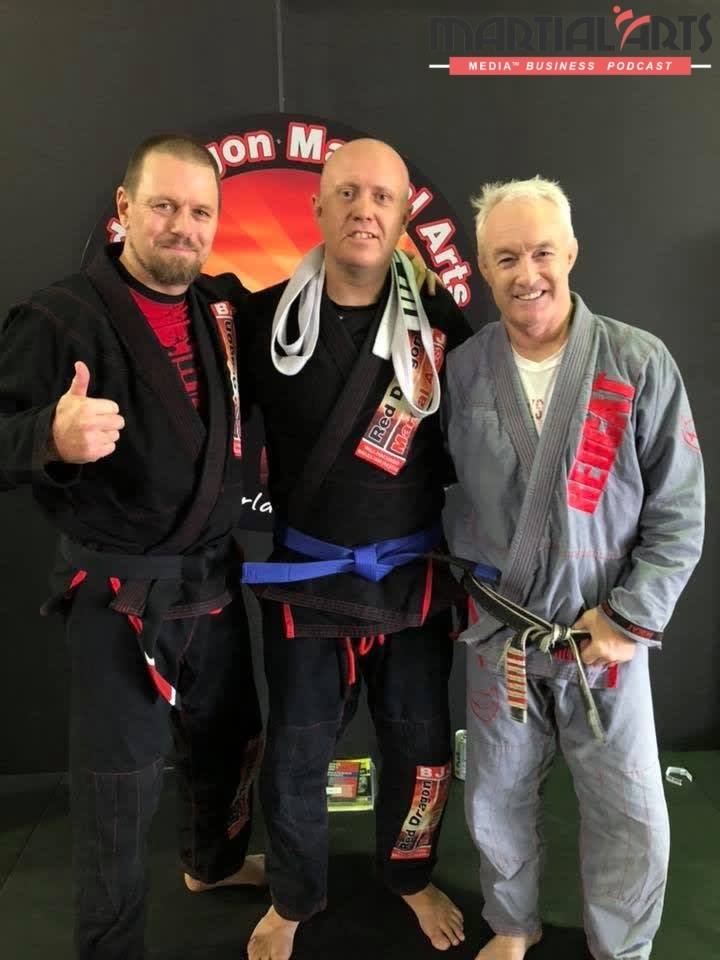
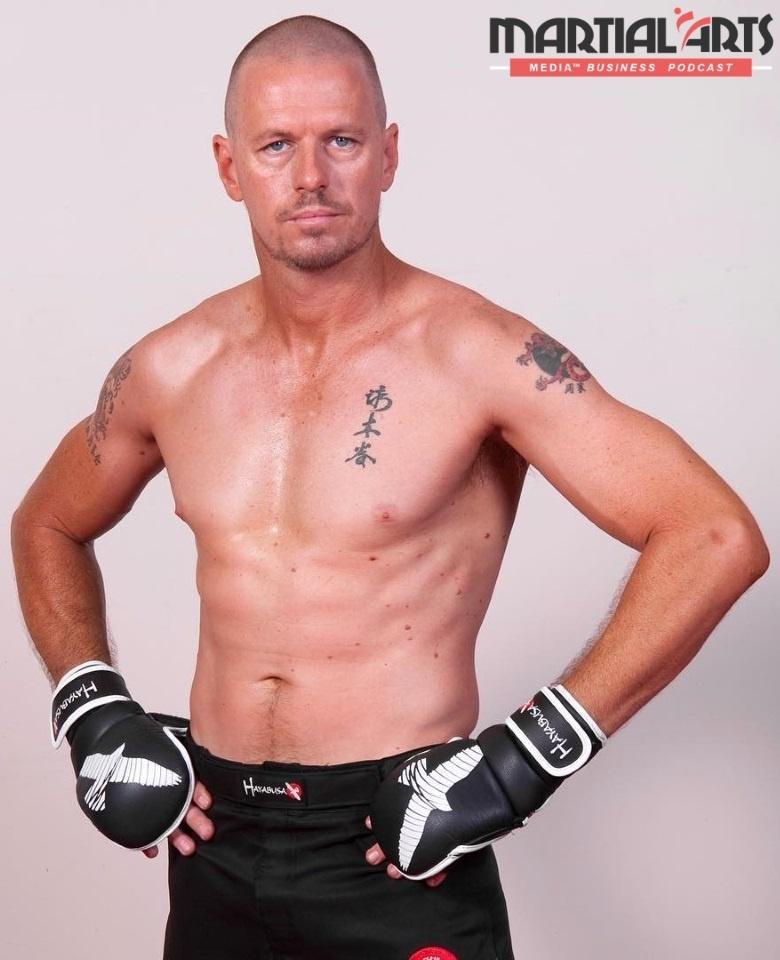
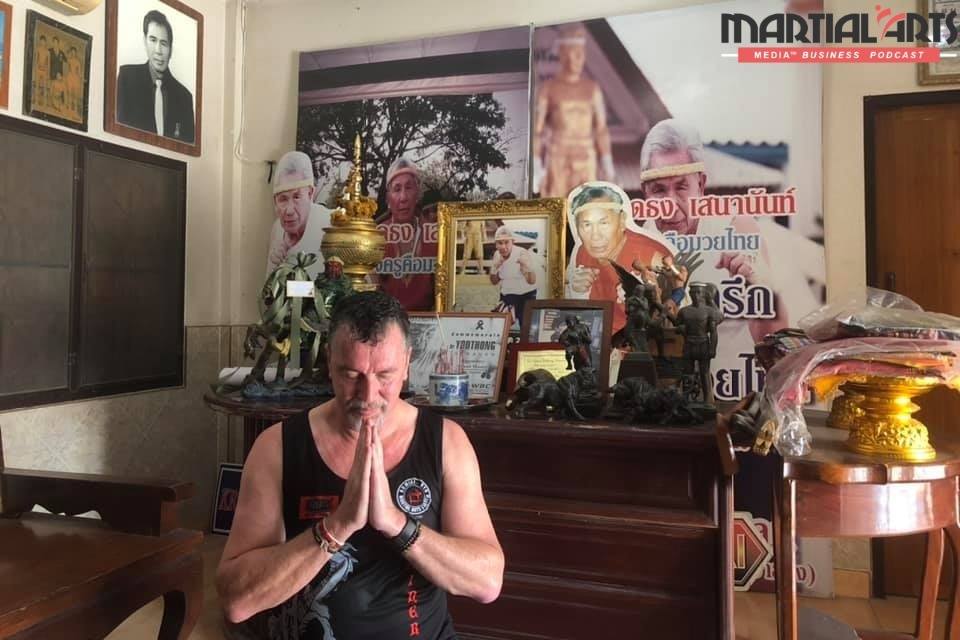

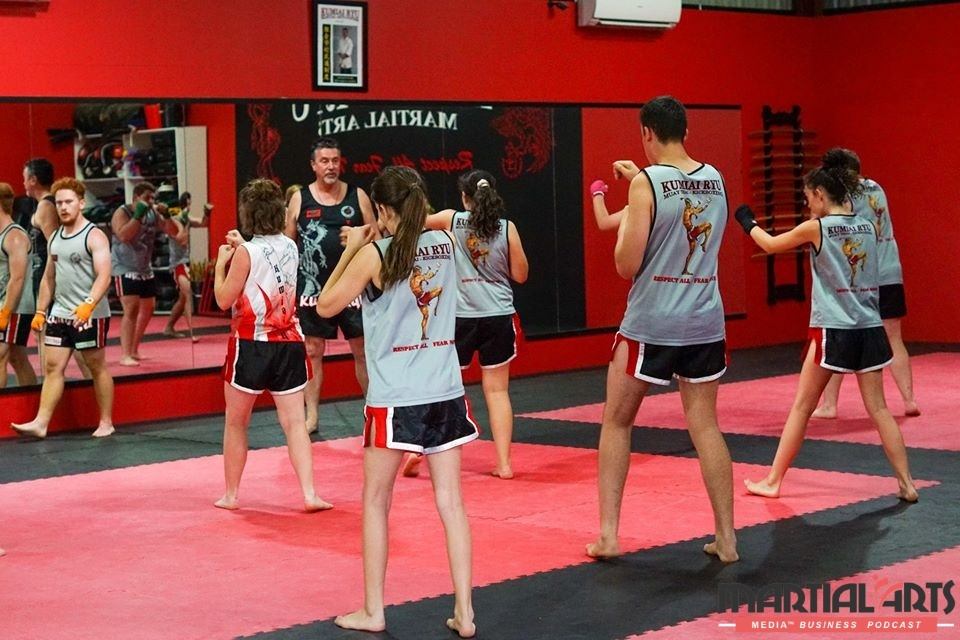
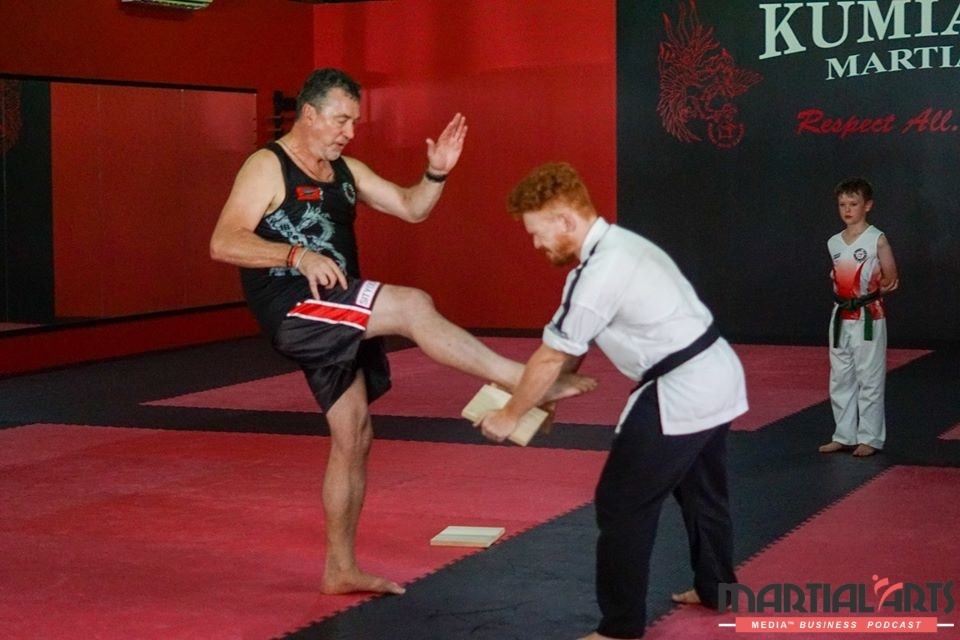




 RHONDA:
RHONDA:
 RHONDA:
RHONDA:
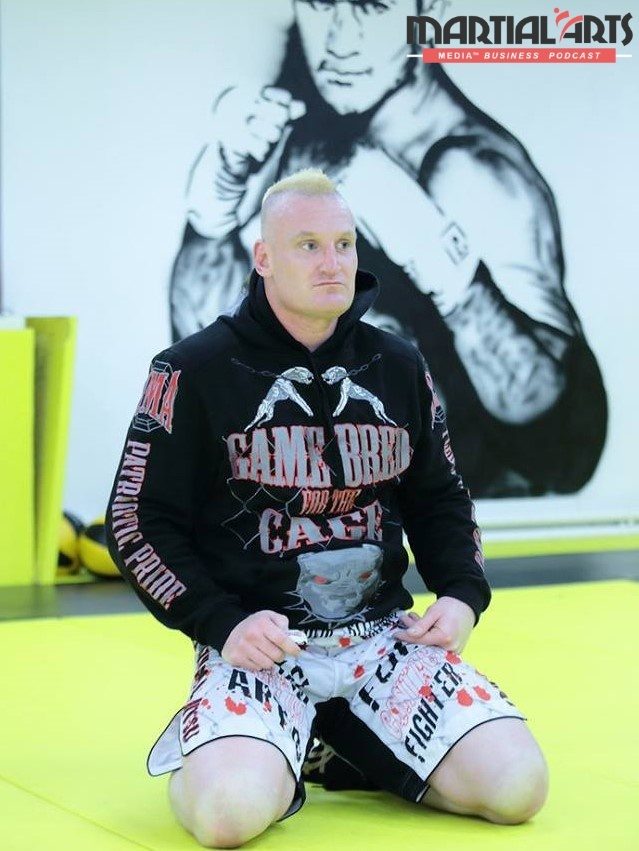 So along my path to where I thought I wanted to go, or where I thought I needed to be, there were blocks depending on, you know, which, you know, which country rose in or what was happening in the political climate. The economic downturn in 2008, you know, really killed K1.
So along my path to where I thought I wanted to go, or where I thought I needed to be, there were blocks depending on, you know, which, you know, which country rose in or what was happening in the political climate. The economic downturn in 2008, you know, really killed K1. 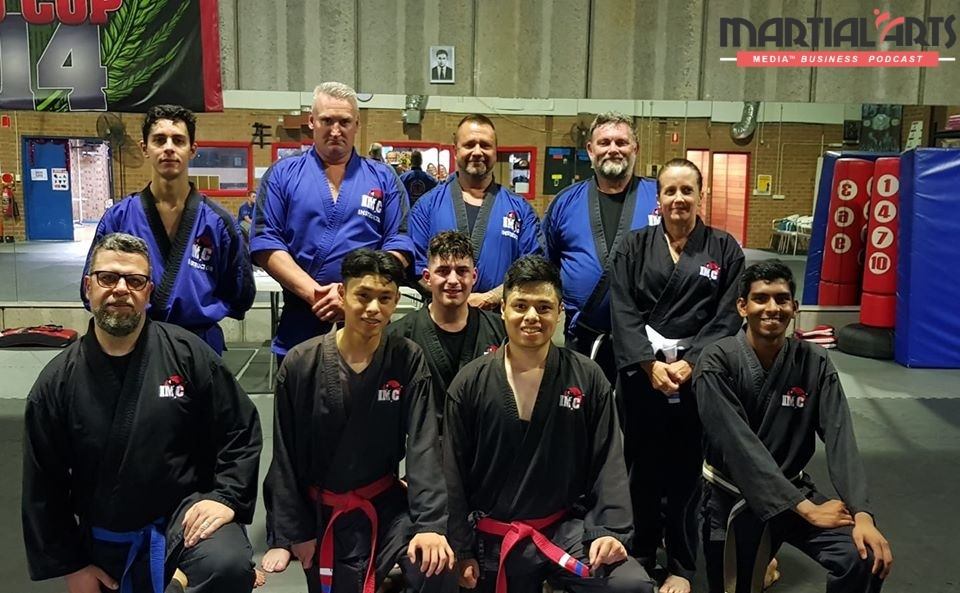
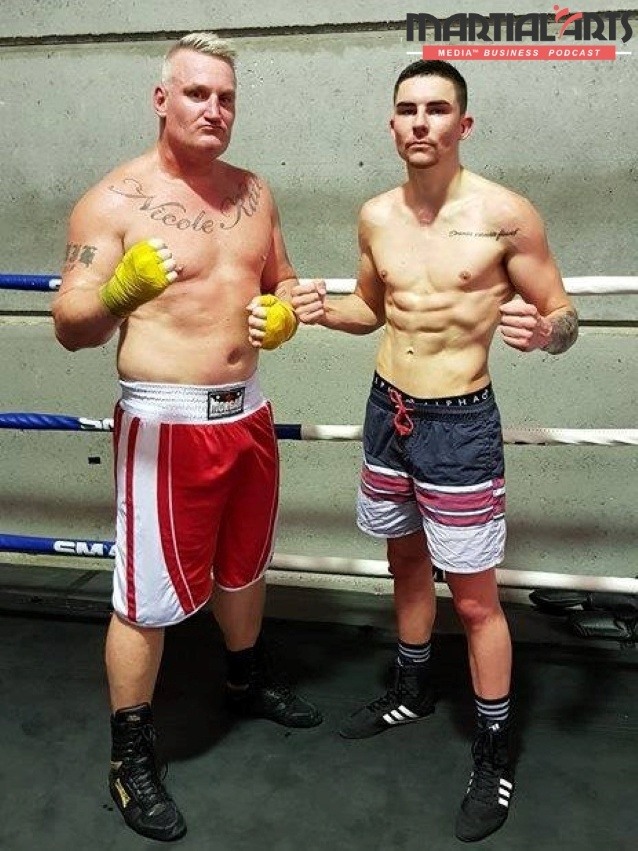 PETER:
PETER: 
 KYLIE:
KYLIE:  KYLIE:
KYLIE:  For everybody else who really wants to invest in moving forward. In this cocoon time, I've reframed quarantine to cocoon time. And I suggest you do the same, right? I think it's quite useful to go, “Okay, we're all cocooned in our homes now.
For everybody else who really wants to invest in moving forward. In this cocoon time, I've reframed quarantine to cocoon time. And I suggest you do the same, right? I think it's quite useful to go, “Okay, we're all cocooned in our homes now. 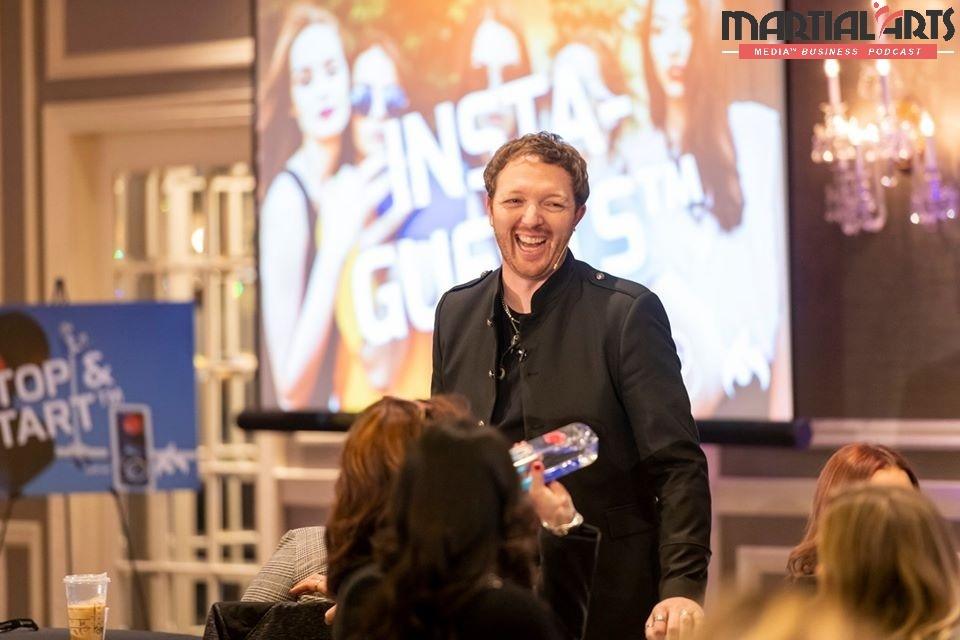


 I want you to hear this. People have more money than they've ever had before. I eat out almost every single day and I've eaten out twice in the last week. So do you think I have more money or less money right now? More.
I want you to hear this. People have more money than they've ever had before. I eat out almost every single day and I've eaten out twice in the last week. So do you think I have more money or less money right now? More. 

